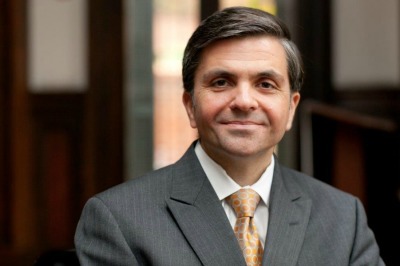Methodists and Race

Wesley Seminary hosted a well attended panel on faith and race last evening, undoubtedly nobly intended, but frustratingly offering few if any clear pathways of hope. Several panelists mentioned the church's supposed "silence" about race. But I've attended official United Methodist governing bodies for my entire adult life, and this "silence" has actually been loud and repetitive across at least thirty years, doubtless much longer.
Repeated summons to remorse, confession, repentance, and reparation on race amid indignation and anxiety, have long been common fare in often guilt-ridden Mainline Protestantism, which remains not only overwhelmingly white, but the very whitest part of American Christianity, with United Methodism and its sister denominations having memberships less than ten percent racial and ethnic minorities.
Mainline governing bodies have tried to compensate by filling leadership positions disproportionately with minorities, sometimes instituting rigid quotas, yet still failing to racially diversify their overall memberships. And the Mainliners, in their political social justice witness, have advocated governmental policies aligned with the secular Left that end up hurting racial minority communities: larger welfare states, increased minimum wages, restrictions on effective law enforcement, resistance to private education, undermining traditional family structures and private charities rooted in churches.
Perhaps most distressing last evening and in the longstanding Mainline witness on race is the implied assumption that racism is universally pervasive, deeply systemic, and virtually indefatigable, demanding ongoing atonement with no reasonable chance of ultimate redemption. It confirms the thesis of Jody Bottom's recent book, An Anxious Age: The Post-Protestant Ethic and the Spirit of America, which asserts that secular America has substituted racism for Original Sin, a cosmically corrupting force as irresistible as gravity, which unlike Original Sin, has no divine escape, just ongoing ameliorative sacrifices.
The original Civil Rights Movement, against greater obstacles, was far more hopeful, but its goals were well defined and attainable, i.e. legislation guaranteeing legal equality. What are the goals for today? I'm not sure any mainline denomination is truly equipped to offer serious answers for racial progress, when they're incapable of attracting significant numbers of non-whites. More helpful would be to heed the counsel of the Assemblies of God, a growing 3 million member Pentecostal church, which is 40% non-white, compared to about 32% for America.
Of course, the AoG, like nearly all churches successful with non-whites, is theologically conservative. Last evening at Wesley, several speakers cited LGBTQ issues. But LGBTQ advocacy doesn't fare well in very many minority churches, especially for immigrants. If the white liberal Mainline had to choose between LGBTQ or appealing to racial minorities, which would it choose? Of course, in many cases, that choice has already been made, and the results are predictable.
Several speakers at Wesley last eve made some sensible points, and former Bill Clinton press secretary Mike McCurry, now a professor of public theology, moderated capably. He likely will try to expand the conversation at Wesley beyond traditional liberal Protestantism.
One panelist last eve incorrectly asserted that whites will fall to minority status in America in 2016. I believe the actual projection is 2040. But in 25 years, racial identities are likely to be far less defined and static, with millions of Americans having ancestry in several different races, and many millions more simply indifferent to such categories. The traditional American melting pot may ultimately solve what social and political exertions could not.
Meanwhile the Church of Jesus Christ, rejecting the tribalism and prejudice endemic to all cultures in fallen humanity everywhere, must insist on the intrinsic, God-given moral equality of all persons, which is a spiritual anthropology requiring robustly orthodox Christian theology.




























